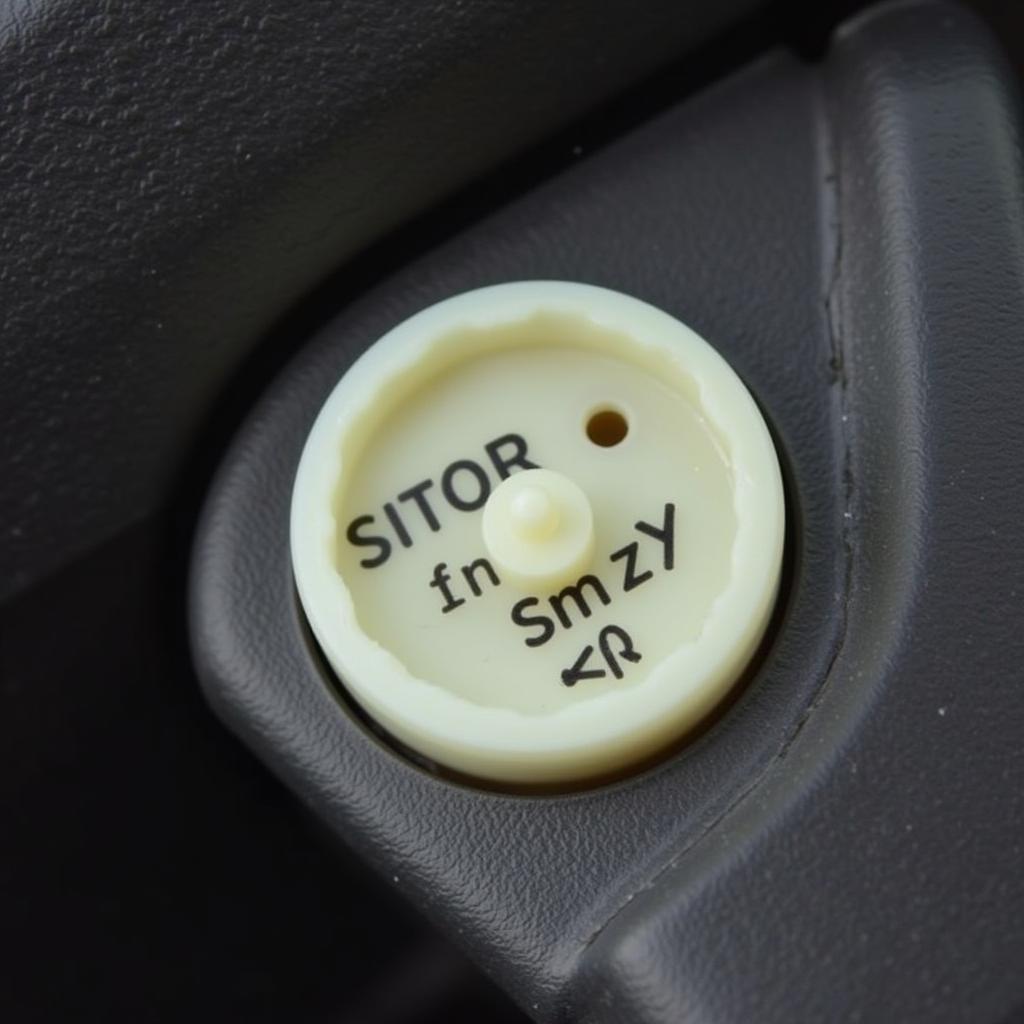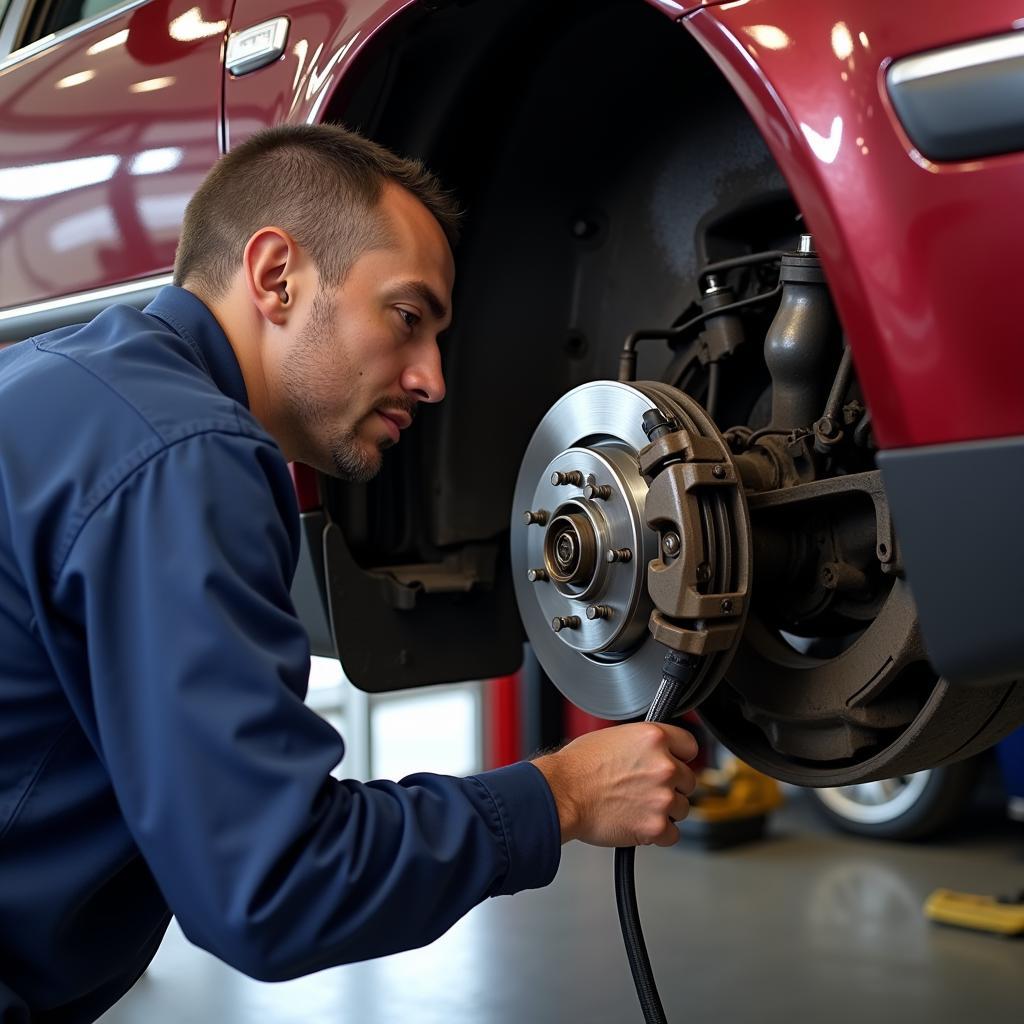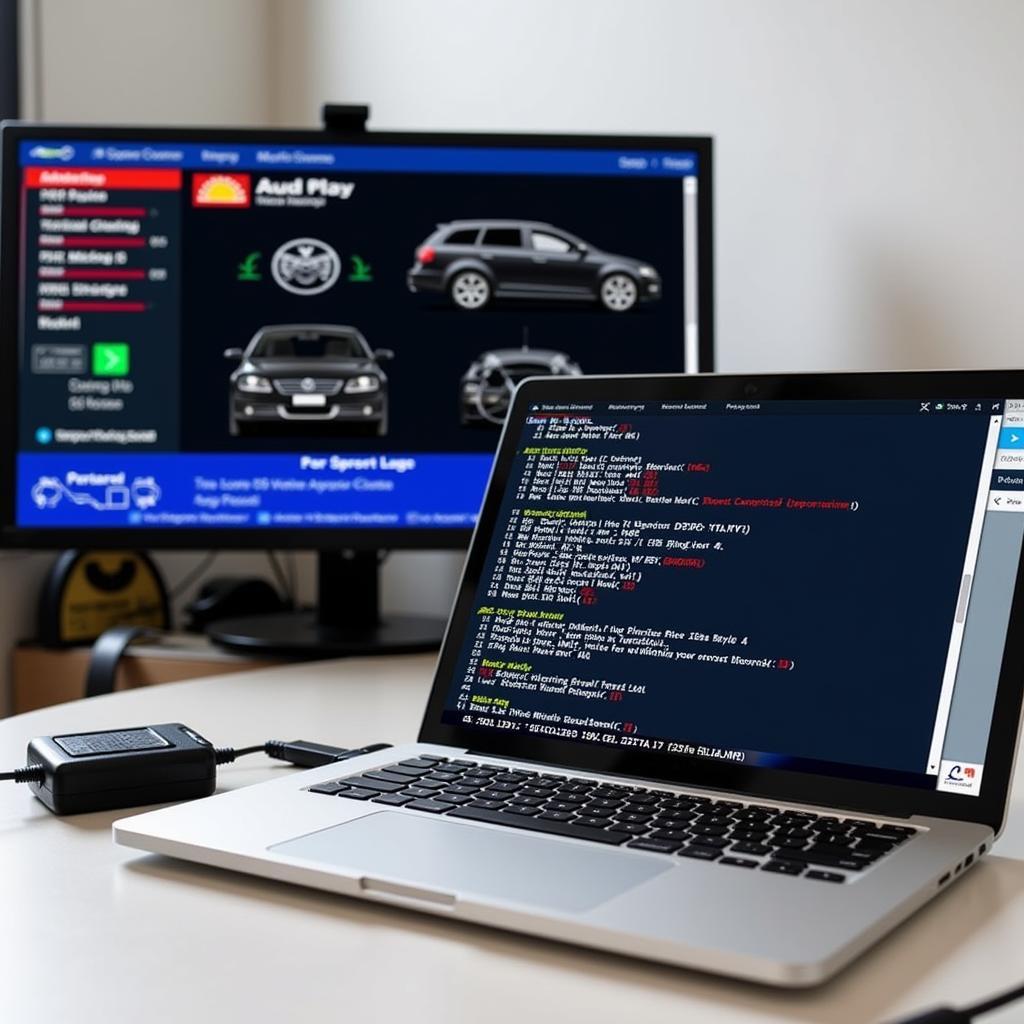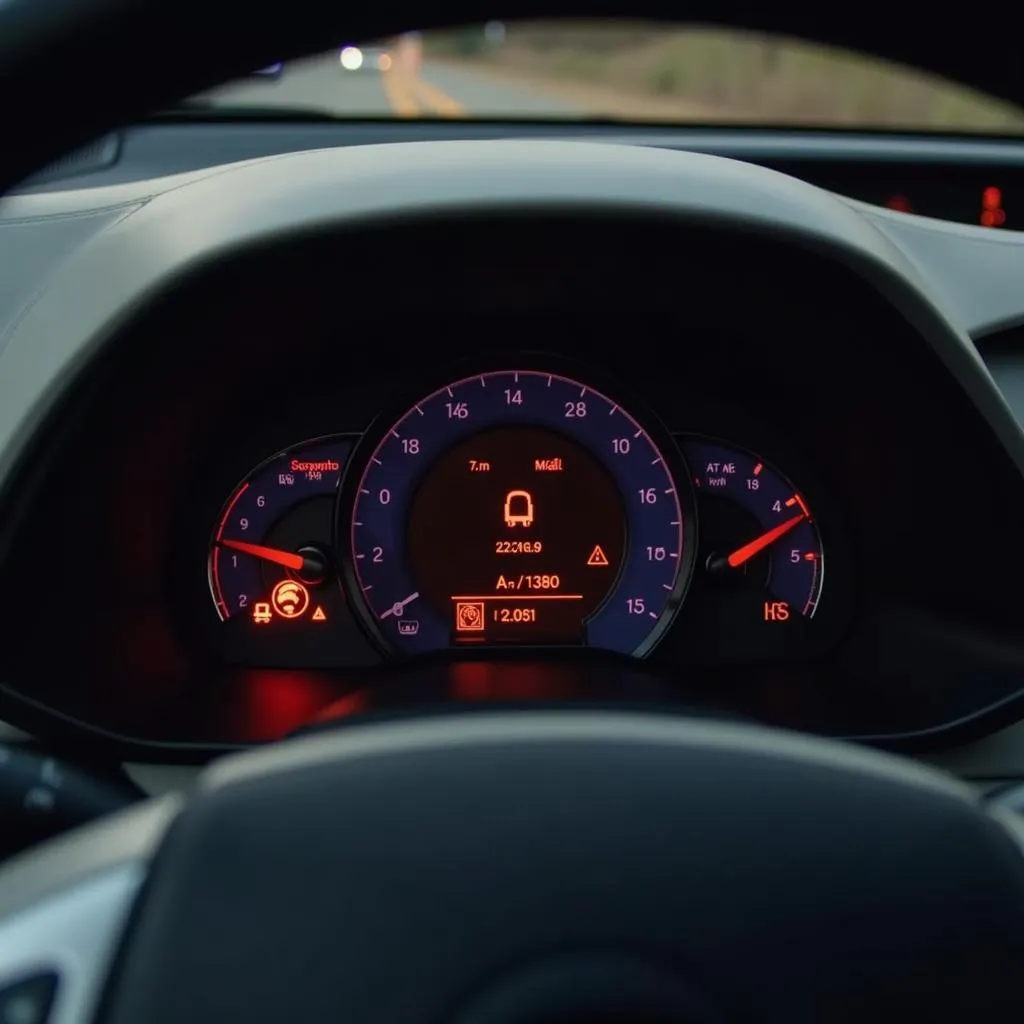The parking brake warning light on your 2000 VW Passat is designed to alert you to a few different potential issues. While it’s commonly associated with an engaged parking brake, it can also indicate problems with your brake fluid, brake lines, or even electrical malfunctions. Ignoring this warning light can lead to serious safety hazards and potentially costly repairs.
This comprehensive guide will explore the most common causes of a lit parking brake warning light on a 2000 VW Passat, guide you through troubleshooting steps, and provide potential solutions to get you back on the road safely.
Common Causes of a 2000 VW Passat Parking Brake Warning Light
There are several reasons why your 2000 VW Passat’s parking brake warning light might be on:
-
Engaged Parking Brake: The most straightforward explanation is that the parking brake is partially or fully engaged. Always double-check that the parking brake lever is fully released before assuming a more complex problem.
-
Low Brake Fluid: Your Passat, like all vehicles with hydraulic brakes, relies on brake fluid to transmit force and stop the car. If the brake fluid level is low, it could trigger the warning light.
-
Worn Brake Pads: While your Passat may not have a dedicated brake pad wear sensor, thin brake pads can indirectly cause the parking brake warning light to illuminate. This is because worn pads require more brake fluid to function properly, potentially leading to a drop in fluid level.
-
Brake Fluid Leak: A leak anywhere in the brake system, from the master cylinder to the brake lines and calipers, can cause a drop in brake fluid pressure and trigger the warning light.
-
Faulty Brake Light Switch: The parking brake warning light circuit is often connected to the brake light switch. A malfunctioning brake light switch can cause the warning light to stay on even if the parking brake is not engaged.
-
Electrical Problems: As with any electrical system in a vehicle, wiring issues, a faulty sensor, or a problem with the instrument cluster itself can cause the parking brake warning light to malfunction.
 Brake Fluid Reservoir
Brake Fluid Reservoir
Troubleshooting a 2000 VW Passat Parking Brake Warning Light
Before heading to a mechanic, you can try a few simple troubleshooting steps:
-
Check the Parking Brake: Ensure the parking brake lever is fully released. Sometimes, the lever may not fully disengage, even if it feels like it has.
-
Inspect the Brake Fluid Level: Locate the brake fluid reservoir under the hood (refer to your owner’s manual for the exact location). The reservoir will have minimum and maximum level markings. If the fluid level is below the minimum mark, add the correct type of DOT 3 or DOT 4 brake fluid as specified in your owner’s manual.
-
Check for Visible Leaks: Inspect the area around the brake fluid reservoir, brake lines, and near the wheels for any signs of leaking brake fluid. Leaking fluid will appear as a clear or yellowish oily substance.
 Brake Line Inspection
Brake Line Inspection
When to Consult a Mechanic
If the parking brake warning light remains on after performing the basic troubleshooting steps, or if you discover a brake fluid leak, it’s crucial to consult a qualified mechanic immediately. Driving with a compromised brake system is extremely dangerous.
A mechanic specializing in VW vehicles can properly diagnose the issue using specialized diagnostic tools. They can identify problems with the brake light switch, electrical system, or other components that might be causing the warning light to stay on.
Remote Diagnostics and Software Solutions
In some cases, the issue triggering your 2000 VW Passat’s parking brake warning light might be electronic in nature. Modern vehicles rely heavily on sensors and modules that communicate with the car’s computer system. A specialized mechanic with access to remote diagnostic and programming tools may be able to diagnose and resolve the issue without the need for extensive physical inspection.
Here’s how remote diagnostics and software solutions can help:
-
Pinpointing Sensor Faults: Remote diagnostics can quickly identify faulty sensors, such as the brake fluid level sensor or the brake light switch, that might be sending incorrect signals to the instrument cluster.
-
Module Reprogramming: In certain situations, a software glitch or outdated module programming might be the culprit. A mechanic with the right tools can reprogram or update the relevant modules to resolve the issue.
-
Clearing Error Codes: Often, even after fixing the underlying problem, the warning light may remain illuminated due to stored error codes. Remote diagnostics allow mechanics to access and clear these codes, effectively resetting the warning light.
 Remote Diagnostics
Remote Diagnostics
Expert Insight:
“Investing in remote diagnostics and programming tools has significantly enhanced our ability to diagnose and resolve complex issues with vehicles like the 2000 VW Passat,” says Mark Stevenson, a certified automotive technician with over 20 years of experience specializing in European cars. “These tools allow us to pinpoint electrical faults, reprogram modules, and clear error codes quickly and efficiently, often saving our customers time and money compared to traditional diagnostic methods.”
Conclusion
The parking brake warning light on your 2000 VW Passat should never be ignored. While a simple oversight like an engaged parking brake is often the cause, the light can also point to more serious issues with your braking system. By understanding the common causes, performing basic troubleshooting, and seeking professional help when needed, you can ensure the safety and reliability of your vehicle. Remember, a properly functioning brake system is paramount for your safety and the safety of others on the road.


